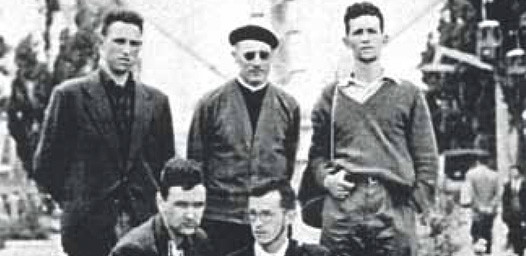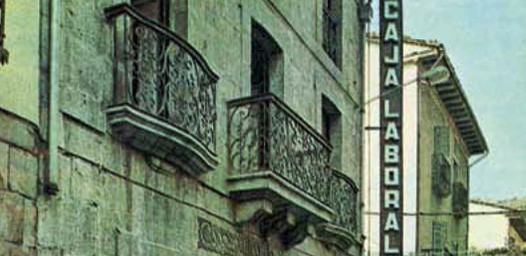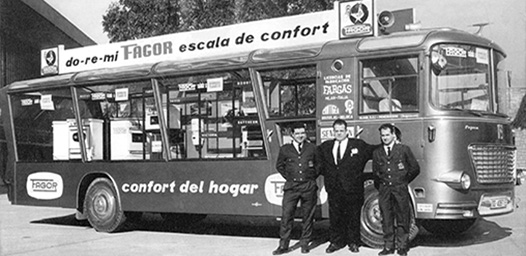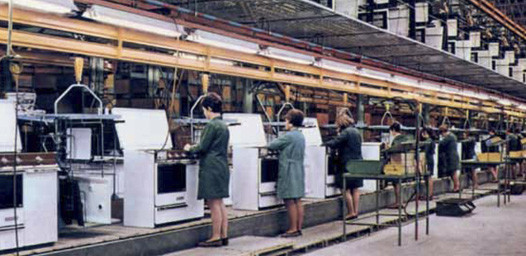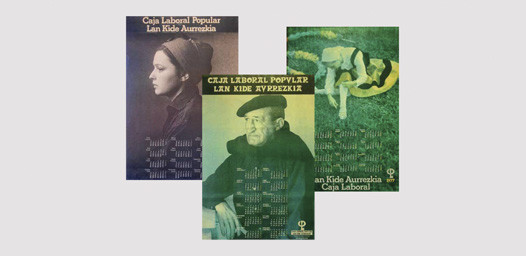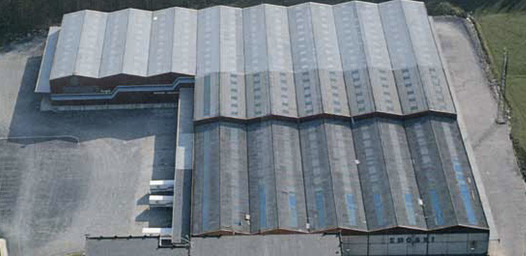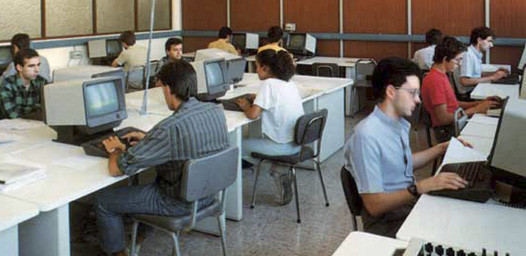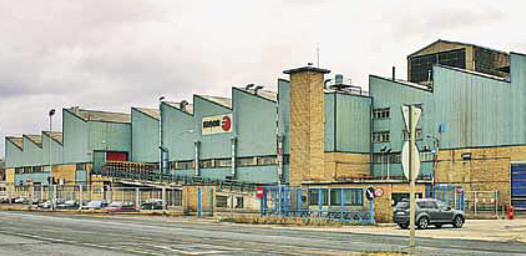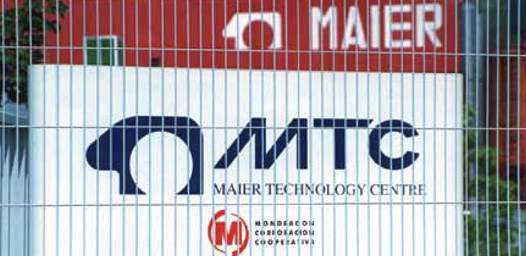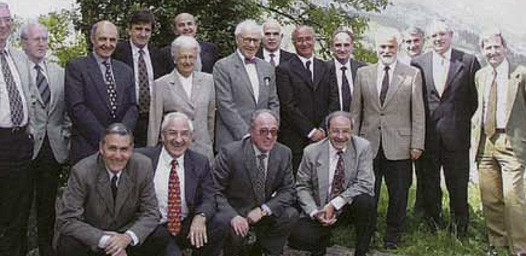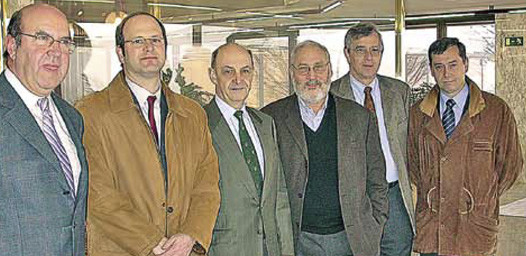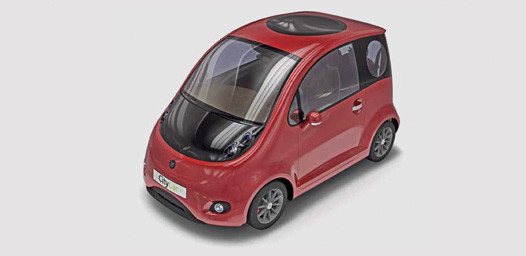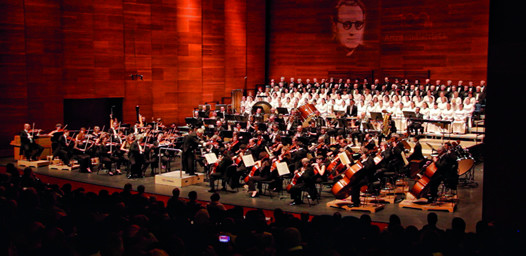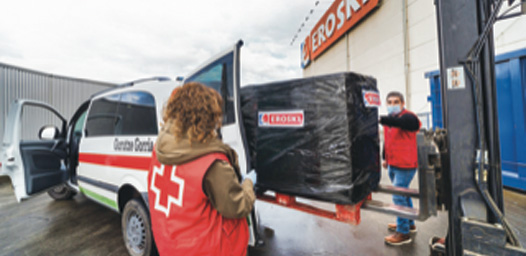ABOUT US
COOPERATION
MONDRAGON is the outcome of a cooperative business project launched in 1956. Its mission is encapsulated in its Corporate Values: intercooperation, grassroots management, corporate social responsibility, innovation, democratic organisation, education and social transformation, among others.
intercooperation,
corporate social responsibility,
innovation,
education,
social transformation…
We are a dedicated group of people with a cooperative identity forming a business group that is profitable, competitive and enterprising, capable of successfully operating in global markets. Our organisation uses democratic methods in its corporate organisation, and its aims are employment, the personal and professional advancement of its workers, and the development of its community.
Organisationally, MONDRAGON is divided into four areas: Finance, Industry, Retail and Knowledge. It currently consists of 81 separate, self-governing cooperatives, around 70,000 people and 12 R&D centres, occupying first place in the Basque business ranking and tenth in Spain.
COOPERATIVES
PEOPLE
R&D
CENTRES
BASQUE BUSINESS RANKING

SALES IN MORE THAN
150
COUNTRIES
WORLDWIDE
MONDRAGON is the leading business project in the Basque Country and one of the largest corporations in Spain. It operates throughout the world, with 104 production plants in 37 countries, commercial business in 53, and sales in more than 150.

DIFFERENT
People in cooperation
MONDRAGON is a cooperative association and always has been. This hallmark is one of its strengths and one of the reasons for its success. One of MONDRAGON’s specific traits has been its collective approach, combining the benefits of consensus with the cooperatives’ human dimension, creating a robust and supportive cooperative project.

Mission
A socioeconomic business project deeply rooted in Basque culture, created by and for people.
Committed to a sustainable society, greater competitiveness and customer satisfaction, with the remit to create wealth and transform society through business development and employment.
It is driven by a commitment to solidarity, applying democratic methods in its organisation and management.
It boosts people’s engagement and involvement in the management, performance and ownership of its companies.
Vision
MONDRAGON is Cooperation A cooperative socioeconomic project, with dedicated people working in global companies that are profitable, competitive and enterprising, acknowledged for their human values, social impact and competitiveness.
Values
Cooperation: Owners and protagonists.
Participation: Grassroots management.
Corporate Social Responsibility: Fair distribution of wealth.
Innovation: Continuous renewal
Furthermore, based on the Cooperative Principles and its own experience, MONDRAGON nurtures the values of self-motivation and shared responsibility, intercooperation, social transformation and good corporate governance practices.
MONDRAGON’s Principles
1. Open Membership
MONDRAGON is open to anyone who accepts our Principles.
2. Democratic organisation
A one person, one vote system for election of the cooperative’s governing bodies and for deciding on the most important issues.
3. Sovereignty of Labour
Profit is allocated on the basis of the work contributed by each member in order to achieve this profit.
4. Instrumental and subordinated nature of capital
The capital factor is a necessary resource, but it does not confer the right to vote and its stake in the profit is limited and subordinated to labour.
5. Participation in the management
People’s responsible involvement in managing the business.
6. Wage solidarity
In accordance with the cooperative’s real possibilities, and equitable at an internal and external level and for MONDRAGON.
7. Inter-cooperation
As a mechanism for solidarity between cooperatives and business efficiency.
8. Social transformation
Commitment to the supportive, sustainable development of our local area.
9. Universality
In solidarity with the promoters of economic democracy within the context of the Social Economy, fully embracing the goals of the international cooperative movement.
10. Education
Promoting people and the cooperative culture, allocating human and financial resources to the cooperative and professional Education of the members and of young people in general.
ETHICAL CODE
Our way of doing business, focused on people and committed to society, indicates the ethical guidelines of our conduct.
The MONDRAGON Corporate Center has established the codes of behavior that should guide the daily work of its people in relation to the different stakeholders. Our code of ethics focuses on aspects that are collected in the following document.
CORPORACIÓN MONDRAGON ETHICAL CODEFUTURE
A future that we built starting from our history. Let us now travel back through our Experience’s major milestones. A year-by-year chronicle of the main corporate events that have shaped the MONDRAGON project.





